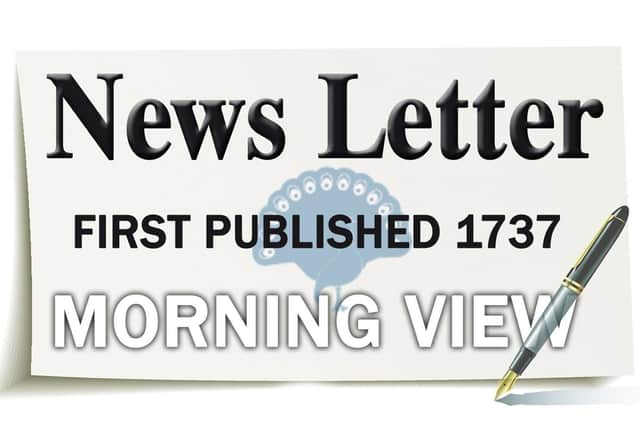Editorial: Cabinet papers are a reminder that for all his flaws, Tony Blair did help unionists at critical points


Today we publish newly declassified Irish government papers, and this week we will publish London and Belfast files, as we do annually.
Among the stories today are an account of a reported “row” between President Bill Clinton and the then Sinn Fein president Gerry Adams in the White House in 2000, two years after the Belfast Agreement, about slow decommissioning.
Advertisement
Hide AdAdvertisement
Hide AdMr Clinton reportedly agreed to Mr Adams’ request to put pressure on the UK to show demilitarisation. The report of a phone call between Mr Clinton and Mr Blair confirms that he did so. None of this is particularly surprising or new but it is a reminder of how Mr Clinton and Mr Blair ushered in a new era in which both the Labour Party in the UK and the Democratic Party in the US accepted the flaws in the old left-wing goal of a united Ireland. Both marginalised the more militantly Irish republican sympathisers in their parties, and opened real dialogue with unionists, but both also struck up warm relations with Sinn Fein. Mr Clinton has remained a close friend of SF, demonstrated in his gentle touching of the coffin of Martin McGuinness, a man who – if he had been a terrorist on American soil – would have been killed, let alone shown such respect. Mr Clinton’s instincts were also apparent in his sly anti-unionist speech in Queen’s University earlier this year.
For all the criticism heaped on Mr Blair since he left Downing Street, much of it justified, the government papers are a reminder of how much worse the unionist situation would have been without him. His speech at Balmoral in 1997, days after becoming premier, was an emphatic defence of the UK and consent principle.
His speech to Belfast Harbour Commissioners in 2002, as the UK rightly took back control of NI with no increased say for the unhappy Irish, was a key moment too, explicitly criticising the IRA and utilising UK sovereignty.